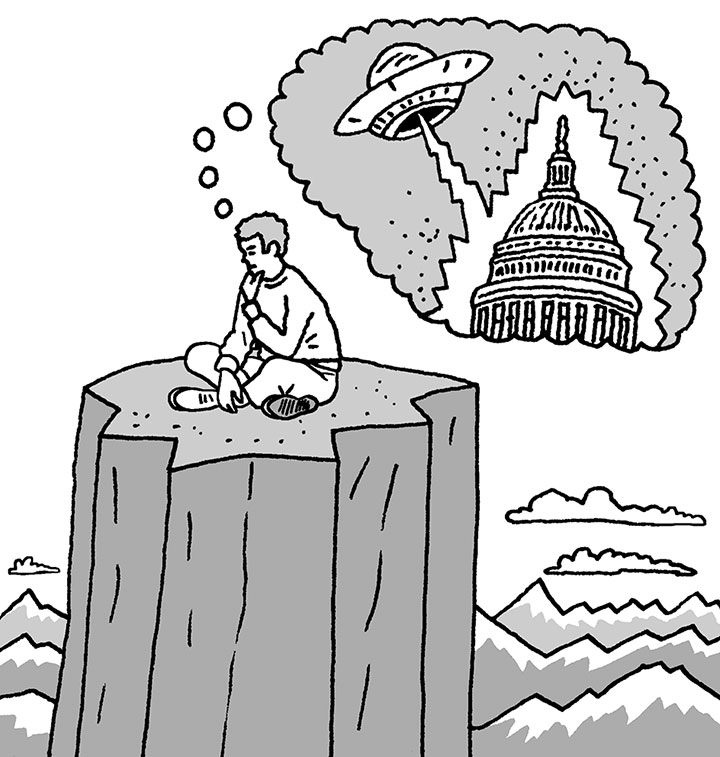In Short
When a giant dust storm raged across the Middle East in 2015, media reports blamed a loss of vegetation caused by the military conflict in Iraq and Syria. An analysis by civil and environmental engineering professor Elie Bou-Zeid and his colleagues, however, points to CLIMATE CHANGE. They wrote in Environmental Research Letters in November that there was actually more vegetation cover in 2015 than in past years and that the dust storm was caused by wind patterns and arid conditions exacerbated by unusually hot temperatures.
When people feel excluded from others, they are more likely to buy into CONSPIRACY THEORIES, according to a study by psychology research assistant Damaris Graeupner and assistant professor Alin Coman, published online in the Journal of Experimental Social Psychology in October. They asked subjects to write about when they felt excluded from social interactions and then asked them to rate their belief in conspiracy theories, such as government-issued subliminal messages. The authors speculate that conspiratorial beliefs may cause even more exclusion, leading to a vicious cycle.












No responses yet